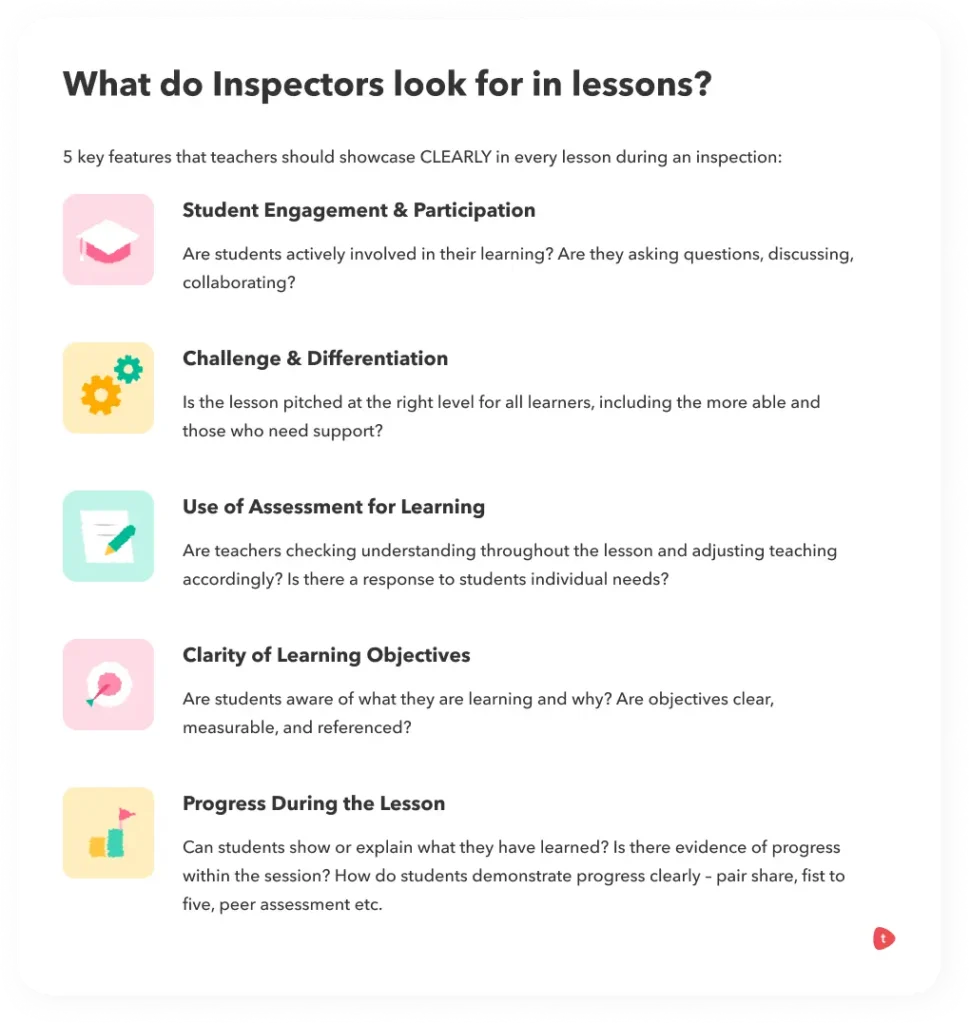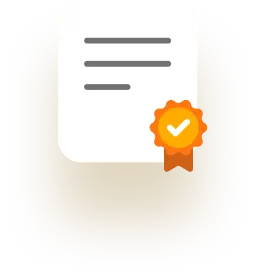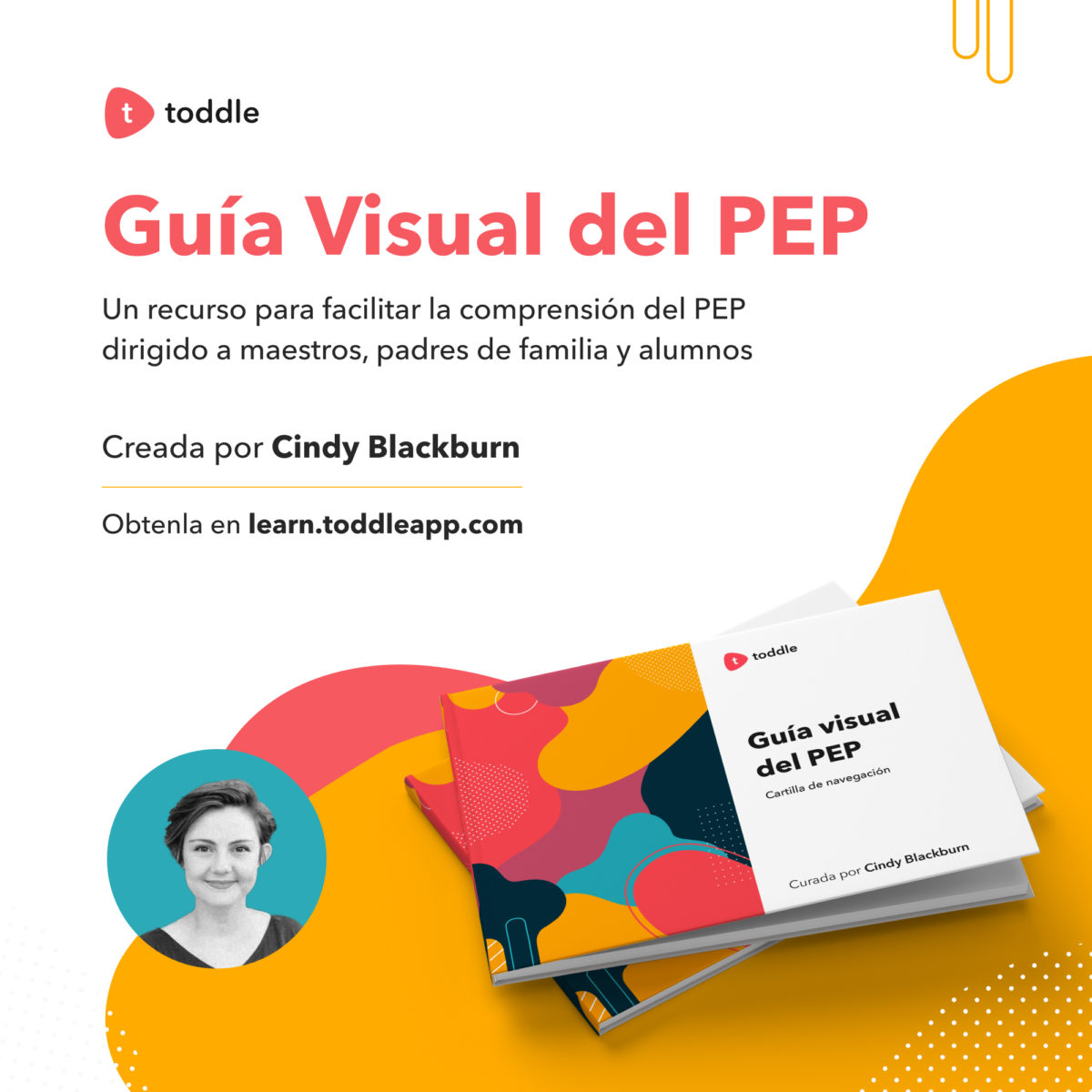Type your school name to search Van Hornesville-Owen D. Young Central School District OFFICE OF EDUCATION JUVENILE JUSTICE COMMISSION Corpus Christi Independent School District Modern International School, Bangkok Maya Schools Antalya Armijo High School Legacy Traditional School-San Tan (1001927) Maximilian School Waldorf School At Moraine Farm - Beverly, MA Geelong Lutheran College academic school of excellence St Anthony School - San Gabriel, CA Noranda Primary School, Noranda, WA St Helena School - Edison, NJ Lilliput Early Childhood Center - Shrewsbury, MA Allanson Primary School, Allanson, WA Middle Ridge State School St Catherine's School, Toorak, VIC Scholze Center - Chattanooga, TN DWPS West Morris Regional School District Lakeshore Intergenerational School City School At Fairmount - Philadelphia, PA Aspire Alexander Twilight College Prep Acad DIST Synergy Public School Inc. (92981) St Philomena Academy - Coatesville, PA St Gabriel Elementary School - Bronx, NY Doomadgee State School Toormina Public School Whitsunday Anglican School Apple Montessori Of Hoboken - Hoboken, NJ THE BRITISH INT.SCH. OF AL KHOBAR (BOYS) Yoakum Independent School District French American School Of New York - Mamaroneck, NY Bridgetown High School John Paul Ii Catholic School - Overland Park, KS Funful English Primary School Montessori Childrens Academy - Villa Park, IL Washington Catholic Middle High School - Washington, IN Excel Center - South Bend Gatewood Elementary Escola de Trilhas EABH One World Montessori School Inc. Leigh - San Jose, CA Racine School District Mount Dandenong Primary School The Hills Christian Community School - Verdun Campus, Verdun, SA St James Lutheran School - Quincy, IL King Richard School Mandell JCC Sunshine worldwide International IB school Christian Education For Deeside MVC ELEMENTARY SCHOOL Winston School - Del Mar, CA Emerald State High School, Emerald, QLD oakmount day nursery Johnstonville Elementary St. Charles R-VI School District Southbroom Infants Tettenhall College Holroyd School, Merrylands, NSW Odin Public School District 722 Delhi Public School, Kp-V Mahanaim International High School Cumberland County School District Whian Whian Public School, Whian Whian, NSW Crawford International la-Lucia pre- primary Robla Elementary School District Aquila Elementary-St. Louis Park,Minnesota TOP RANK INTELLECTUAL ACADEMY St John'S Catholic School - Beloit, KS United Local School District Our Lady of The Rosary Primary School, St Marys, NSW Gems New Millenium Crosswind Comm Church-Adventureland Preschool - Palmdale, CA Nulkaba Public School OneSchool Global QLD - Maryborough, St Helens, QLD United Kidz Academy San Antonio - San Antonio, TX Elizabeth East Primary School Oneida County School District 351 Mungar State School CATS Canterbury Sacred Heart School - Groton, CT Oakey State School Lund International School Maranatha Baptist Academy - Saint Robert, MO Lodi Day Nursery School/Kindergarten - Lodi, CA Sumner High School Westwood Collegiate-Winnipeg,Manitoba Stone Ridge Christian School - Duluth, MN Cobre Consolidated Schools Culver School District 4 KTEC - Kootenai Tech Ed Campus Mooresville City Schools USI West Branch Local School District Was working now I am searching for jobs Inspire School of Arts and Sciences District Riverside Secondary School-Windsor,Ontario St Philip's Christian College - Cessnock Shirley Run Amish School - Centerville, PA St James the Apostle School Heatley Secondary College, Heatley, QLD Sunrise Special Education Amish School - Reedsville, PA Midland High School Urapunga Kenilworth State Community College, Kenilworth, QLD Play Pal Sherwood Hills Christian School Leeds International School Alstonville Public School, Alstonville, NSW Norfolk Public Schools Rutherford Winans Academy Les Enfants Montessori School - Astoria, NY 30 eagles, nest preschool Howletch and Shotton Primary Childcare Ltd Intermountain Adventist Academy - Grand Junction, CO Cardinale Spellman SUIS Pudong - Sanlin Campus Mohawk Country Day School - White Plains, NY Berkshire Waldorf High School - Great Barrington, MA Corning City School District Kings County ROP Lower Yukon School District Missionary Christian Academy - Tampa, FL Whitney Young Elementary School-Louisville,Kentucky St Mary'S School - Remsen, IA Park City Prep Charter School District Midway Independent School District (McLennan County) The ICT Service qingdao chaoyin Narrogin Senior High School Our Village Family Childcare El Tejon Unified School District Big Picture Educational Academy District Springfield Montessori School - Dublin, CA altanta international school Joseph S Bruno Montessori Academy - Birmingham, AL Al Raby Newent Community School And Sixth Form Centre Turkey Ford Public School canadian international of Beijing Grace Community School - Tyler, TX Victoria College Herlufsholm Colegio Franklin Delano Roosevelt Utama International School Johor Bahru Harts Range School Horsham West and Haven Primary School-Haven Campus, Haven, VIC St Paul the Apostle Catholic Primary School, Doreen, VIC Milman State School, Milman, QLD MS SCHLS FOR THE DEAF AND THE BLIND Franklin Community School Corporation Carbondale Elementary School District 95 Bay of Islands International Academy Lipan Independent School District New Covenant Christian School - Lebanon, PA Edna Karr High School Westhill Institute Santa Fe Hesperia Christian School - Hesperia, CA Lincoln Unified School District 298 Lehman Catholic High School - Sidney, OH Summerfield School District Shine Bright Maiden Gully Early Years Hub Gymnázium Šrobárova 1, Košice St Philomena's School YCIS St Rose Of Lima School - Warwick, RI The Democratic School Garner Magnet High School-Garner,North Carolina The Green Room Paddock Wood Primary SVB International school Oasis Academy Hadley Bridgeton Public Charter School Holy Cross School - Omaha, NE Parkman Parochial - Middlefield, OH West Valley Christain School - Goodyear, AZ LAKE ARTHUR St. Xavier's Public School Berkwood Hedge School - Berkeley, CA Arcadia Valley State School Glendale-River Hills School District Heritage Christian School - Gillette, WY Yeshiva Ketana Toras Chaim - Chestnut Ridge, NY Montessori Children House - Warminster, PA New Trier Township High School District 203 The Royal Harbour Academy (The Ellington and Hereson school) Indian School Wadi Kabir Cambridge International Millhopper Montessori School - Gainesville, FL Sanford Middle School Williamstown High School Barwon Heads Primary School lassele high school St. Catherine's Moorlands-Tortuguitas Unley High School, Netherby, SA PEMBROKE San Martin De Porres Catholic School - Weslaco, TX Our Lady of Mount Carmel School, Coorparoo, QLD Midnimo Cross Cultural Middle School Lahore Grammar International School Kingsville Independent School District Mount Kelly Koroit And District Primary School, Koroit, VIC Girilambone Public School Kalamazoo RESA Thorp Academy House Of Hope Maryland Day School - Ashton, MD Rapid City Seventh-Day Adventist Elementary School - Rapid City, SD Cuyama Joint Unified Minimbah Primary School, Armidale, NSW Mountain Cambridge School Aiwin International School Rosebud Cottage Child Care St Joseph Catholic School - Galion, OH Longview Mennonite School - Livingston, CA Windsor South Public School Dawn Treader Christian School - Paterson, NJ crescent model Vilas School District Re-5 LEVINE ACADEMY Gymnasium am Münsterplatz Drouin Primary School Pleasant Grove Public School Hilltop Christian School - Fuquay Varina, NC English Private School of Kalba Sydney Secondary College Blackwattle Bay Campus MO SCHLS FOR THE SEV DISABLED Dragon American School Wallaroo Mines Primary School, Kadina, SA International School of Dublin Green Lake School District Kincumber Public School, Kincumber, NSW Sandy Lane Nursery School - Belleville, NJ St James Catholic School - Savannah, GA Ca?on City School District RE-1 St Johns school Burringurrah Remote Community School Faith Evangelical Lutheran School - Antioch, IL Big Sandy School District 100J Toormina High School, Toormina, NSW Pacific Beach Middle School-San Diego,California Building Blocks Montessori School - Wilson, NC Winfield Heights Christian Kindergarten - Williston, SC Glossodia Public School, Glossodia, NSW Sekolah Mutiara Harapan IB World School Indian Creek Community Unit District 425 Bristol Bay Christian Learning Center - King Salmon, AK Tombolo Academy, Hampton, VIC Bear Valley International School-Denver,Colorado St Joseph High School - Lakewood, CA Nolan Catholic High School - Fort Worth, TX St Joseph's Convent Strathfield North Public School St. Maries Joint School District 41 Lamoine Public Schools Innisfail State School, Innisfail, QLD Bookcliff Christian School - Grand Junction, CO Covenant Christian Academy - Anderson, SC Grace Christian Academy - Covington, GA Sts Philip And James Elementary - Canal Fulton, OH Northwestern High School Rockford Public Schools St John The Evangelist School - Spring Green, WI Scott Creek Primary School Eagle Grove Community School District Morris Catholic High School - Denville, NJ Kyneton Primary School, Kyneton, VIC Little Earth School - Santa Fe, NM Warragamba Public School, Warragamba, NSW Gulgong Public School Fairy Meadow Public School, Fairy Meadow, NSW Mount Eliza Primary School hahaione American School Dhahran AL-KHOBAR INTERNATIONAL SCHOOL (BOYS) Chilton County School District Oregon State University Saratoga Independent School - Saratoga Springs, NY Windermere Preparatory School - Windermere, FL The Gulf English School, Doha Panmure Primary School, Panmure, VIC Christ Lutheran School - Port St Lucie, FL LeFlore Public Schools Channing Independent School District Moscow Economic School, Campus Zaitsevo Koorana Primary School, Warnbro, WA Park Magnet, an IB World School The Pathfinder School - Traverse City, MI Rosewood Downs Primary School, Dandenong North, VIC St Stephen's School, Algester, QLD St Mary'S Catholic School - Taylor, TX Albany County School District 1 Toddler town academy Clearway School - Newton, MA The De Montfort School New World United Methodist Dcc - Garland, TX OLLERUP EFTERSKOLE University Church of England Academy Townsville West State School, West End, QLD Oak Grove Lutheran Elementary School - Fargo, ND Faith Lutheran College, Tanunda, SA university of new south wales Grace Montessori Academy Incorporated - Elizabeth City, NC Shelton School District Georgetown State School Polo R-VII School District Rock Springs Christian Academy - Milner, GA Our Lady Of Angels Catholic School - Columbia, PA the sterling hall school Wooroloo Primary School Aspect South East Sydney School, Leichhardt, Leichhardt, NSW Glenfield Public School Goddard School - Strafford, PA Sonoita Elementary District (4461) National Park Borough School District Besant Hill School Of Happy Valley - Ojai, CA Harbor Day School - Corona Del Mar, CA Silver Creek School Corporation Lewis and Clark Middle School-Omaha,Nebraska Pine Forge Academy - Pine Forge, PA Cadillac Heritage Christian School - Cadillac, MI mogun Bal-Perazim Christian Academy - Fayetteville, NC Crockett Independent School District Ecos BCIS Phuket Bracknell and Wokingham College Bethany Lutheran Primary School, Raceview, QLD Dayton Primary School CREATIVE LEARNING PATHS SCHOOL Magnetic Island State School Faith Christian Academy - Wharton, TX Totowa Borough School District The Open Doorway Inc - West Palm Beach, FL MARLIN ISD Moorine Rock Primary School, Moorine Rock, WA St Mary's Catholic Primary School, Bundaberg, QLD Beaumont Road Public School Dixons Kings Academy dpsgs AIMS College Prep High District Redlands Adventist Academy - Redlands, CA Ezekiel W. Cullen Middle School Wings Learning Center - Redwood City, CA Yeshiva Tzoin Yosef - Monsey, NY Sunway International School, Sunway City Iskandar Puteri Universal Academy Oakridge International School, Royal Childrens Hospital Education Institute, Parkville, VIC Deerfield Elem Carfax College St John The Baptist Catholic School - Costa Mesa, CA The Stoke Poges School Kapooka Public School, Kapooka, NSW Academy For Advancement Of Children With Autism - Lancaster, CA Terrigal Public School, Terrigal, NSW JOEL E. SMILLOW PREP Meachem Elementary School-Syracuse,NY Numinbah Valley State School Suffield Academy - Suffield, CT Mountain View Montessori - Wausau, WI Rockingham Montessori School - Secondary School Campus, Rockingham, WA TLC Child Care Center Hoxie Community Schools Unified School District 412 St Therese School-Munhall - Homestead, PA Assumption Catholic School - Durand, WI Children For Christ Academy - Lithonia, GA Northwest Arctic Borough School District Lake Tahoe Unified School District Candia School District Saint-Charlesbourg,Quebec The Island Private School Limassol Carbrook Animal Assisted Learning Centre, Carbrook, QLD Cudgegong Valley Public School The Out-of-Door Academy Bethesda Lutheran School - Hot Springs, SD North Lamar Independent School District Potential Christian Academy - Cooper City, FL Henry Foss High School-Tacoma,Washington Alta-1 College - Huntingdale Campus, Huntingdale, WA Carisbrooke Pre School Olive Public Schools St Helen School - Chicago, IL KIPP Booker T. Washington Özel Bilkent Okulları Muskingum Valley ESC Research Primary School Elkins Christian Academy - Elkins, WV BRIDGE HOUSE COLLEGE, IKOYI Calvary Christian Academy - Turner, ME Templeton Primary School, Wantirna, VIC Encino Presbyterian Childrens Center - Encino, CA King George Secondary St Cloud Christian Prep - St Cloud, FL River Oaks Baptist School Northern Middle School-Hagerstown,Maryland Millner Primary School, Millner, NT Lake Park Elementary School Sekolah Cikal - Setu Columbus Adventist School - Columbus, GA PALS@paramount Centro Escolar Campoalegre Sunmarke School Maramba Primary School, Narre Warren, VIC Australia Street Infants School, Newtown, NSW Tirranna Public School, Goulburn, NSW VICTORIA GRAMMAR SCHOOL Grădinita cu Program Prelungit Nr8, Buzau TRECA Digital Academy Colorado Academy Westlake High School-Westlake,Ohio Westside Christian School - Middleton, WI Kuwait billingual Tesla Education Greenbrier Community School - Lewisburg, WV Shaarei Arazim Of Monsey - Monsey, NY 1St Cerebral Palsy Of New Jersey - Belleville, NJ Feniton Church of England Primary Scjool All Saints Episcopal School - Beaumont, TX Northern Cambria Catholic School - Nicktown, PA Lincoln Primary Congleton High School Sierra School Of Sonoma County - Sebastopol, CA Robinson Township Christian School - Mc Kees Rocks, PA Mangrove School Of Sarasota - Sarasota, FL Caroline Chisholm School - Junior Campus, Chisholm, ACT Belle Meade Montessori School - Sperryville, VA St Luke's Grammar School St Matthew The Apostle Catholic School - Gahanna, OH Wellington Primary Salem Community Schools WATER VALLEY ISD Tlc Leadership Academy - Audubon, PA Faulconbridge Public School Young Achievers Early Learning Centre Campbell-Tintah Public School District Eden Hill Primary School Butler County ESC Peregrine School - Davis, CA Amulakh Amichand International School Ngarra Christian College, Riverstone, NSW Avery Trace Middle School-Cookeville,Tennessee St Declan's Catholic Primary School, Penshurst, NSW Thuringowa State High School Washington Waldorf School - Bethesda, MD Rogers Public Schools UMDONI CHRISTIAN ACADEMY Annoor Academy Of Chattanooga - Chattanooga, TN Holy Rosary - Wea Catholic School - Bucyrus, KS Winters Independent School District Illinois Lutheran High School And Junior High - Crete, IL Taree Public School, Taree, NSW City Harbour International School Southport State High School Robinson Community Unit School District 2 Indian Oasis-Baboquivari Unified District Wakefield School District Redeemer Christian Academy - Wayzata, MN Guangzhou Foreign Language School Anderson Academy Of Mathematics An Science - Las Vegas, NV Towradgi Public School Vineland City School District Downers Grove Grade School District 58 St Albans Tuition Centre St Angela School - Chicago, IL CEST Bajío Kradle To Kindergarten Preschool Ii - Lauderhill, FL Learners International School Catholic Education Services Diocese of Cairns Oklahoma Union Public Schools Crossroads Christian School - Morgan Hill, CA Stepping Stones Learning Academy - Fruitland, MD Hoxie School District Sale College-Guthridge Campus Scallywags Park Forest School District 163 Maret School - Washington, DC Bahria Town School Premier Campus (Boys) Magic English Language Center Glendale Primary School Agate School District No. 300 Summit Academy - Herman, PA Michigan Virtual Charter Academy Nambucca Valley Christian Community School, Nambucca Heads, NSW Hill-Freedman World Academy Jackson-Madison County School System Westport Public School, Port Macquarie, NSW Oakridge International School, Khajaguda, India Homebush Public School, Homebush, NSW Koorda Primary School, Koorda, WA Wilkes County School District Kaunas Jesuit High School The Armidale School, Armidale, NSW II LO Gen Zamoyskiej I H Modrzejewskiej Casula High School Cedar International School Franklin County School District St Johns School - Ashtabula, OH JOEL E SMILOW COLLEGIATE NEW YORK CITY GEOGRAPHIC DISTRICT #21 Katherine High School Bahçeşehir Private School Sallisaw Public Schools Acted Commission Scolaire Marguerite-Québec City,Quebec Taalum group Eyfs Saint George's C of E School San Angelo Independent School District Life Academy - Grand Junction, CO The Bay School Of San Francisco - San Francisco, CA Edvantedge Learning Kishami Academy - Colorado Springs, CO Cross Christian Academy - Surprise, AZ Goulburn High School, Goulburn, NSW NHL Stenden Hogeschool Wolcott School District Satya School Wilkins Public School, Marrickville, NSW American Youth Academy-Tampa,FL Brunswick North Primary School, Brunswick West, VIC Shalva High School - Lakewood, NJ Southern Tier Catholic School - Olean, NY Meadows Academy Hangzhou No.4 High School The village Champions Ambleside School - Mclean, VA Silkwood School Billanook College, Mooroolbark, VIC Manar Montessori Teacher Training Center For Tn/Ncme - Hendersonville, TN St Bernard'S High School Inc - Fitchburg, MA Melba Copland Secondary School Copland Campus Years 7 - 10, Melba, ACT St Theresa Catholic School - Little Rock, AR Liceo Sinaí La Bella Vita Montessori School, Llc - Omaha, NE Sarah Towles Reed High School Carroll Plt Public Schools British Council, Peshawar The Embassy Academy - Oakland Park, FL Mount Carmel Catholic College, Varroville, NSW St Francis' School Gimnazija Kranj The United School Of Autism - Scottsdale, AZ Red House International School Santana St Anthony's Parish Primary School Skipstone Academy Westwood Campus - Thomaston, GA Walter M. Williams High School-Burlington,North Carolina Kane ROE Warner Public Schools Ischool - Carson City, NV Academy International Elementary School-Colorado Springs,Colorado Colegio Americano De Quito LYCEE FRANCO QATARIEN VOLTAIRE DOHA Westerway Primary School, Westerway, TAS Kennington Primary School St Mark United Methodist Kindergarten - Birmingham, AL Guardian Angel Elementary - Pacoima, CA Shortridge High School-Indianapolis,Indiana New Horizon Amish School - Cambridge Springs, PA Chinese International School Renaissance International School College of Southern Idaho Early Learning Center Djugerari Remote Community School, Djugerari Community, WA Billings R-IV School District Academy for English Education of Lubumbashi Gosforth Academy East Greenbush Central School District Grace Fellowship Academy - Buckeye, AZ Mongol Aspiration The City School, Nowshera St Joseph's Primary School, Culcairn, NSW Travis Science Academy-Temple,Texas Kindergarten/CIS anglocolombiano Life Christian Academy - White House, TN Hoven School District 53-2 Sewanhaka Central High School District Delavan Christian School - Delavan, WI WAES Yeshiva Toras Aron - Lakewood, NJ St. Luke Montessori Preschool At Copperfield - Houston, TX Shadowbrook Weekday School - Suwanee, GA St Andrews School - Barrington, RI Lake Forest Montessori School - Lake Forest, CA ELWY LANGUAGE SCHOOL Fountain Gate Secondary College Li.ceul Teoretic Bilingv Mark Twain IS Western Australian College Of Agriculture - Narrogin, Narrogin, WA Pitaara Unleashed Gramojoy Pre and Primary School École secondaire catholique Saint-Whitby,Ontario Bilkent Primary School St Joan Of Arc Elementary School - Marlton, NJ Greystanes High School St Michael's Catholic College Cook School, Loftus, NSW ANPS ENCO WACA internatioal charter school of atlanta St Malachy School - Rantoul, IL Ics Côte d’Azur Eumundi State School Fuzhou International Preschool @ 1 Park Avenue Providence Christian School - Riverview, FL Brunstane Primary school O'Connell Public School St Francis De Sales Catholic Primary School, Lynbrook, VIC St Vincent De Paul School - Bedford, IN Danbo International School Abuja Learning Corner - North Tustin, CA Cristo Rey St. Viator Las Vegas College Preparator - North Las Vegas, NV Redbridge School Lansdale Catholic High School - Lansdale, PA Bnos Margulia Viznitz - Dba Of Yeshiva Imrei Chaim - Brooklyn, NY ZEPHYR ISD Meade School District In The Presence Of God Coram Deo Classical Academy - Brownsville, TX Mount Larcom State School, Mount Larcom, QLD Nyah District Primary School, Nyah West, VIC Blevins School District St. Anthony Academy-Dallas,Texas Christ Episcopal School - Covington, LA Loudoun School For Advanced Studies - Ashburn, VA PYP/Çanakkale College Plainview-Elgin-Millville World Education St Dominic's School, Camberwell, VIC Fulton County Center for Career and Technology HARLEM VILLAGE ACADEMY EAST CHARTER SCHOOL Wood Dale School District 7 Canterbury Girls High School Owens School District No.6 (4373) Lanaar - Miami, FL Koonibba Aboriginal School Christ The King Elementary School - Amherst, NY Sanger Unified School District Traralgon (Stockdale Road) Primary School CISK I.I.S. Tulliano Le Grand Union High School District St Thomas Catholic School - Philo, IL Hinterland Christian College, Mullumbimby, NSW St Paul's School, Sunshine West, VIC Scott Elementary Holy Cross Catholic School - Batavia, IL ST. GEORGE'S COLLEGE Credo School GHANA CHRISTIAN INT HIGH SCHOOL St Elizabeth School - Altadena, CA Midlands Montessori School - Lexington, SC Mogo Public School, Mogo, NSW The Healdsburg School-Healdsburg,CA St Mary'S School - Montrose, MO Son Kids Christian School - Spring, TX FALCON RIDGE PUBLIC CHARTER SCHOOL INC. Wollongong High School of the Performing Arts, Fairy Meadow, NSW Caledonian Primary School, Brown Hill, VIC Putnam City Public Schools Thayer Academy Ghaf Private School Al-Taqwa College - Olive Branch Annexe dar al marefa Beru Early Years Brophy College Preparatory - Phoenix, AZ Maryborough Education Centre, Maryborough, VIC Cambridge Public Schools Chisholm Trail Academy - Keene, TX ENKO Schools Riviera Emerald Primary School, Emerald, VIC Mulberry Bush Day Nursery at St.Edmunds Immaculate Conception Newburyport - Newburyport, MA Gimnazija ''Svetozar Markovic'' Marie Bashir Public School sacred heart church, Rajagiriya Tri-State STEM+M School Riverside Primary School, Greenfields, WA Bonsall Unified School District PMFRC BAS program Mission Viejo Christian School - Mission Viejo, CA ICEF View Park Preparatory High District Northern Heights Elementary-Bellingham,Washington St Augustine High School - Laredo, TX Evangel Christian School - Saraland, AL SEK Riyadh Kensington Primary School, Kensington, VIC The Portsmouth Grammar School St Joseph School - Danville, PA BEK Lodge Twin Hills Public School Montessori Children'S House Of Auburn - Auburn, MA Capernaum AOG Dev Center UNIDAD EDUCATIVA STELLA MARIS International School of Krakow School Lane Charter School ISANA Palmati Academy District Westwood Baptist Academy - Poplar Bluff, MO Vivega Brentwood Union Elementary School District Hillcrest Christian College - Coolangatta Campus, Coolangatta, QLD Thuringia International School Weimar GIMNASIO ALTAIR DE CARTAGENA Federal College of Education, Abeokuta, Nigeria Thornbury Primary School Lehighton Area School District Geff Community Consolidated School District 14 Ormond Primary School Alexander Montessori School - Miami, FL CJ SCHOOLS LIMITED Union Community School District Zion Lutheran School - Marengo, IL Community Christian Academy - Woodland, CA Brompton Primary School Cleveland County Schools Hilltop Road Public School, Merrylands, NSW All Saints Academy-St Cloud Campus - Saint Cloud, MN Colegio San Agustín de Chiclayo Green Gibbsboro Borough School District Mckinnon Secondary College, Mckinnon, VIC St Bridget School - Abington, MA York Public Schools Skellefteå kommun Oakdale Joint Unified School District Prince of Peace Lutheran College Garden College - Elizabeth Campus, Daveron Park, SA St John School - Old Saybrook, CT German European School Singapore Corowa South Public School Sacred Heart School - Spencer, IA Perkins School - Seattle, WA Osaka YMCA International School Riverview Baptist Christian School - Morrilton, AR Trinity Lutheran - Marysville, OH International School For Autism/Global Leaders Aca - Kissimmee, FL Racine Montessori School - Racine, WI Anahilt Primary Sch Hamtramck Academy Al-Arqam Islamic School and College Preparatory Owen County School District Shotwell Middle School Baler Primary School Ballarat Clarendon College, Ballarat, VIC Freemans Reach Public School Yuille Park P-8 Community College Forest School Singapore The Way Christian Academy - Tampa, FL GROVE CITY COLLEGE Carwatha College P-12, Noble Park, VIC Alliance College-Ready Middle Academy 12 District Verden Public Schools Elearning Academy - Thibodaux, LA Wellman-Union Consolidated Independent School District Mayfield Central School District Elmhurst Primary School, Elmhurst, VIC Visitation Academy - Saint Louis, MO Sejong Academy Of Minnesota Wilburton Public Schools Leeds School and College Emirates National School Sharjah Campus Gilead Christian School, Junior Senior High - Mount Gilead, OH Aga Khan Nursery Mombasa North High School Heritage Baptist Academy - Antioch, CA Montessori Connections - Dayton, NJ Lajamanu School, Lajamanu, NT EBENEZER RUSDALE SCHOOL Excelsior Primary School, Canning Vale, WA Ken Stimpson Community School Astana Bilim Innovation lyceum Steel Center for Career and Technical Education Ramsay State School, Ramsay, QLD Canton School District 41-1 St Martha Elementary School - Philadelphia, PA Tlc Kids Care - Port Orange, FL Banta Charter District Victory High School - Jaffrey, NH Manly Village Public School Albany Creek State High School, Albany Creek, QLD Canyoncito Montessori School - Los Alamos, NM Windsor Amish Schools - Windsor, MO Vanguard Charter Academy Arroyo Grande Montessori School - Arroyo Grande, CA Calvary preschool Liceo Scientifico Statale Leonardo da Vinci Herberton State School - Primary Campus, Moomin, QLD St Lawrence Elementary/Middle School - Santa Clara, CA Evangel Temple Christian Academy - Morrow, GA Upper Canada College Martin County School District Altair school Childrens House-Kdg-Bridgetown - Cincinnati, OH Redeemer Episcopal School - Eagle Pass, TX Chrysalis Elementary School - Woodinville, WA Park Place School - Norfolk, VA British International School Chicago South Loop-Chicago,Illinois Immaculate Conception School - Chicago, IL Barnard Lockleys Primary School California Virtual Academy @ Sonoma District GENESEE COMMUNITY CHARTER SCHOOL Maple Springs School - Holmesville, OH Joseph SD 6 Thomas Alva Edison High School-Alexandria,Virginia RBKIE Mount Morgan State High School, Mount Morgan, QLD Tri-Valley School District 49-6 Northern Beaches Secondary College Mackellar Girls Campus, Manly Vale, NSW Magoffin County School District Kenwood High School-Essex,Maryland YINGHUA ACADEMY Wolf Creek Academy - Mars Hill, NC Ascham School Win Newby Kindergarten Department for Education The Charter School SEDA College WA (Lloyd Drive Warwick), Warwick, WA EJE Elementary Academy Charter District south ridge elementary IB world school Central Christian Academy - Orlando, FL Copperfield College-Sydenham Junior Campus, Sydenham, VIC Okolona Separate School District Unique Sixth Form Ltd Point Lonsdale Primary School Saint Edmund Preparatory High School-BROOKLYN,New York Golden Grove Lutheran Trinity Grammar Preparatory School Gillen Primary School Mohall-Lansford-Sherwood Public School District 1 Gethsemane Baptist Christian School - Long Beach, CA OPENair Academy/preschool Bryan County School District North Salem High School-Salem,Oregon Yerecoin Primary School Faith Lutheran School - Lacey, WA Canning Vale College Equitas Academy 4 District Holy Ghost Lutheran School - Niagara Falls, NY Sunshine College-Sunshine Western Region Deaf Facility Lincoln Gardens Primary School, Port Lincoln, SA West Moreton Anglican College, Karrabin, QLD Mother Teresa Regional Catholic School - King Of Prussia, PA National Taiwan Normal University Butler R-V School District Teversham CE primary school Sword Of The Spirit Elementary-High School - Papillion, NE Drouin Secondary College-Blackwood Annexe, Hallora, VIC Anahuacalmecac International University Prep. HS ZAHIRA COLLEGE COLOMBO JCS - Cedar Cove District hwabong Person County Schools Tianyi school East End School District Ann Jerkins-Harris Academy of Excellence Jtrs Bee Happy Bilingual School Group St Frances Cabrini Catholic School - Alamogordo, NM Needville Independent School District St Patrick's Primary School, Holbrook, NSW Sasakwa Public Schools Golden Rule - New Enterprise, PA Colegio Arjí, A.C. Mount Vernon High School, New York Long Road Sixth Form College Lilydale High School, Lilydale, VIC Skyline Public School Canyon Grove Academy Highway Hills Integrated School École secondaire Kénogami-Jonquière,Quebec Patoka Community Unit School District 100 The Columbus school Smith Magnet Elementary School Lanceley Consulting St Hilary School - Tiburon, CA Sensational Enlightment - Memphis, TN Eastbourne College WESTVIEW COLLEGE Immaculate Conception School - Monmouth, IL Zion Buds Of Promise Christian Academy - South Holland, IL Instituto de Educación Secundaria Lancia Mowhawk School - Brinkhaven, OH Mansfield Rudolf Steiner School, Mansfield, VIC Wilkes-Barre Academy - Wilkes Barre, PA Lavalla Catholic College - St Paul's Campus, Traralgon, VIC bright lilies school St. John's day School Chaplin School District Estero High School, FL Ingle Farm East Primary School, Ingle Farm, SA Bluejacket Public Schools الملك العزيز Mary Of Nazareth Catholic S - White Oak, PA Holy Family Grade School - Glendale, CA Millers Creek Christian School - Millers Creek, NC SISQ Ursuline Academy - Dedham, MA ENAS HYBRID SCHOOL École Internationale Arc-en-Ciel Lumen Christi School, Point Cook, VIC Mont Vernon School District Mastery CS-Clymer Elementary Delacombe Primary School Springwood School - Lanett, AL Lamb Of God Ev Lutheran School - West Allis, WI Brewster School District The Pinnacle Schools - Elk River Treatment Program - Elkmont, AL Central Park School For Children Jaiswal International School Australian Christian College - Southlands, Albany, WA Dyce School Mineola Independent School District Lee Street State Special School, Caboolture, QLD Booyal Central State School, Booyal, QLD St Matthews Lutheran School - Oconomowoc, WI St Patrick School - Corpus Christi, TX international school brno Alexandria Central School District Hermit Park State School Pentland State School, Pentland, QLD St Barnabas Elementary School - Chicago, IL St Georges Road Primary School Shepparton-Shepparton English Language Centre Camanche Community School District Maristes Sants Les Corts Bloom-Vernon Local School District Montessori School Of Rochester - Rochester, NY Faith Covenant Academy - Huntsville, AL Creche Internacional de São José de Macau Tung Chung ESF international kindergarten Thomas Jefferson High School-San Antonio,Texas Mountain Springs Preparatory Academy - Cedar City, UT Re-Education Services - Mentor, OH Colegio Letort Nesivos Bais Yaakov Boys - Brooklyn, NY Regis Catholic Schools - Eau Claire, WI Al - Rayan International School R J Hendley Christian Community School - Riviera Beach, FL dubai international academy al barsha Castle Hill Public School, Castle Hill, NSW Jasper County Community Unit School District 1 The Bridge Way School - Philadelphia, PA branksome hall asia Brookstead State School, Brookstead, QLD Heathfield Primary School, Heathfield, SA Mount Garnet State School, Mount Garnet, QLD Raffles Early Childhood Center St. John's School, Tumon Bay, Guam ITESM(Campus Ciudad de México) Chettinad Vidya Mandir, Coimbatore St Michael The Archangel School - Overland Park, KS Eagle Christian Academy - Waco, TX Cairns West State School, Manunda, QLD Buckeye Local School District (Lorain and Medina Counties) Dubbo College South Campus Montgomery County Public Schools Bais Menachem Hebrew Academy - Austin, TX Most Blessed Trinity Academy - Waukegan, IL Ashley Hall School - Charleston, SC Norwich Free Academy District Uplift Ascend Penguin District School, Penguin, TAS Greenfield Exempted Village School District Thomastown Primary School, Thomastown, VIC Mulberry School - Normal, IL Grundy County School District North Merrick Union Free School District Horicon School District Lindfield East Public School Connect Childcare Antelope Valley Union Joint High School District The Joy School - Houston, TX Iliff Preschool, Inc. - Denver, CO Aggie Academy Huron School District Forestville Public School, Forestville, NSW Jersey Shore Area School District Liceo Classico E Linguistico 'Aristofane' Mott-Regent Public School District 1 THRIVE COMMUNITY SCHOOL Genesis One Christian School - Mendenhall, MS Chamblee Methodist Kindergarten - Chamblee, GA 대구중학교 Kurrambee School, Werrington, NSW Sharon School District Audeo Valley Charter District BANGLADESH INTERNATIONAL SCHOOL (BOYS) Marks Point Public School, Marks Point, NSW The Greene School - West Palm Beach, FL Peyton Forest Elementary School Inspire School of Advanced Studies Bethany Catholic Primary School, Werribee, VIC Sirius College - Keysborough Campus Heritage Christian School - North Liberty, IA Lena-Winslow Community Unit School District 202 Jbs Eaton Rapids Public Schools Lewisham Public School, Lewisham, NSW Edinburgh College (Primary Campus) Cunae International School - The Woodlands, TX Fountain Meadow - Apple Creek, OH Aga Kahn Academy Penshurst West Public School, Mortdale, NSW Thomas Reddall High School, Ambarvale, NSW Bright Start Academy - Clifton, NJ Peak Charter Academy Warwick Kids Academy - Newport News, VA ACHIEVEMENT FIRST-BUSHWICK CHARTER SCHOOL Sunlake Academy of Math and Science St James' Catholic High School Alden Central School District BA school Burlington Township School District Hazel Park Preparatory Academy Academy Of Our Lady Of Mount Carmel - Tenafly, NJ Kolegium Europejskie Oakridge Educational Society The British International School, Cairo (BISC) Imperial County Office of Education Croppa Creek Public School, Croppa Creek, NSW St Ambrose Catholic School - Godfrey, IL Corpus Christi College Kennett Christian Academy - Kennett, MO Montessori Academy At Sharon Springs - Cumming, GA RIDGEWAY COMMUNITY SCHOOL KIPP North Philadelphia CS Blanche de Castille Colegio Argentino Árabe Islámico Omar Bin Al Jattab Holy Name Of Jesus School - Indialantic, FL St Mary's Anglican Girls' School, Karrinyup, WA Divine Providence School - Westchester, IL Picton High School Urban Ed Alternative School Outside In School - Portland, OR All The Children Of The World Academy - Westerville, OH Charleville State High School Colyton Public School, Mount Druitt, NSW White Township Consolidated School District Harold M. Brathwaite S.S. Dayspring Preschool & Kindergarten - Tempe, AZ Sale Primary School Escola Americana de São Paulo xiamen international school Cornerstone Schools-Washington - Washington, DC WHIN MUSIC COMMUNITY CHARTER SCHOOL Woodrush High School Grafton Public School, Grafton, NSW Lumbini World School Robert Louis Stevenson Elementary School-Fridley,Minnesota Ic Catholic Prep - Elmhurst, IL Diamante Montessori School - Glen Ellyn, IL Shibden Head Day Nursery TSMS Heyworth Community Unit School District 4 Holakids Private Antalya Konyaalti College St Rose Grammar School - Belmar, NJ Carlswald House Preparatory School Warragul Regional College Churchill North Primary School Indian Mountain School - Lakeville, CT Roanoke Baptist School - Roanoke, IN Croft Middle Design Center The British School of Beijing Shunyi Gulf International Private Academy Valley Falls Unified School District 338 Pine Bush Central School District St Michael and John's Primary School Oxford Preparatory School american gulf school VICTORY CHARTER SCHOOL INC. Holy Family Primary School, Granville East, NSW Mornington Primary School, Mornington, VIC OneSchool Global - Launceston Campus The Goddard School - Austell - Austell, GA Bahçeşehi̇r Mef Okullari Appleton City R-II School District The Language Academy of Sacramento District Prescott School District Montessori Schoolhouse of Tucson Inc. (4428) Westbreen Primary School Owen J. Roberts School District Charles R. Drew Charter School Prince Of Peace Catholic School - Clinton, IA IKM-Manning Community School District Collège Charlemagne The Canterbury School Of Florida - St Petersburg, FL South Hills Academy - Corona, CA St Monica's School, Wodonga, VIC SEDA College (Victoria) - Basketball Burwood COLEGIO SAN ANDRÉS Farmborough Road Public School, Unanderra, NSW Chapel Hill Independent School District (Titus County) Peterson Lomas Preparatoria S.C. escola canadense de campinas Success Preparatory Academy St Martin'S-In-The-Field Episcopal School - Severna Park, MD Owl Creek Nature Playschool GULF INTERNATIONAL SCHOOL (BOYS) Plymouth College Independence School District NAS Suzhou, Xiangcheng Carrier Mills-Stonefort Community Unit School District Warwick State High School, Warwick, QLD Norcross High School Harper Woods Middle School-Harper Woods,Michigan White Plains City School District LAURA JEFFREY ACADEMY CHARTER Cresthill Middle School vels vid St Lawrence High School Carrollton School-Sacred Heart - Miami, FL Bartholomew School St Francis Xavier Primary School, Urana, NSW Honeyview Amish School - Millersburg, IN Colegio Aleman Santa Cruz New Roads School Children's Treehouse of Knowledge Al Rawabi Middle and High School Black Mountain Montessori - Black Mtn, NC Valence School Oak View Amish School - Cecil, WI Cardinal Mooney High School - Youngstown, OH Sarasota Military Academy-Sarasota,Florida Grimsley High School Loxton High School, Loxton, SA Cardwell State School, Cardwell, QLD Comboyne Public School Christian Heritage Academy - Lakeville, MN Monterey Park Christian School - Monterey Park, CA Troy City School District CHARLOTTE VALLEY CENTRAL SCHOOL DISTRICT Boomi Public School, Boomi, NSW Spring Park Elementary School Applegate Adventist Jr Academy - Round Rock, TX Villa Maria Academy - Erie, PA Wheatvale State School, Wheatvale, QLD School Administrative District 68 Leon County School District Community High School - Roanoke, VA primary/The Egyptian japanese school in Redesia Xavier College - Kostka Hall none chung chung 경북대학교 중학교 Symmes Valley Local Sebastopol Primary School, Sebastopol, VIC Sunbury And Macedon Ranges Specialist School-Bullengarook Senior Campus, Bullengarook, VIC OLUMAWU COLLEGE Browerville Public School District International Academy Of Cincinnati - West Chester, OH Friends Western School - Pasadena, CA Rocketship Education DC PCS Bert Oldfield Public School The Indian Public School - Chennai Yukon-Koyukuk School District Erlanger-Elsmere Independent School District Merrimack School District Jenks West Elementary School Bradbury School Our Lady Perpetual Help Catholic School - Rocky Mount, NC HOPE for Hyndman CS Macarthur Girls High School, Parramatta, NSW bromsgrove school Bayles Regional Primary School Chrysalis Experiential Academy Inc. Dba Promise Pr - Cumming, GA Lynwood Senior High School, Parkwood, WA AMERICAN DIGITAL INTERNATIONAL SCHOOL Rio Hondo Preparatory - Arcadia, CA Lakeside Montessori Academy Llc - The Colony, TX St John's D.S.G Raffles Christian School (Kelapa Gading) Franklin Middle School-Green Bay,Minnesota ALBESTA ACADEMY Harris Westminster Sixth Form Universal Muslim Academy - Cincinnati, OH Center Academy - Coral Springs, FL St Catherine Of Siena School - Norwood, MA Pre-Kindergarten program, Radford College Canberra Peranbin Primary College-Baddaginnie Campus, Baddaginnie, VIC Berryville Public Schools Iola Independent School District Hanna Public Schools Richland R-IV School District Riverchase United Methodist Day School - Hoover, AL Illini West High School District 307 Happy Child Nursery School JEDDAH AL-WADI INT SCHOOL (GIRLS) Immaculate Heart Of Mary - High Point, NC Quartz Hill High School Northgate State School Bulman School Sage Day School At Mahwah - Mahwah, NJ Hempstead Union Free School District DHS DIVISION OF DEVELOPMENTAL DISABILITIES SERVICES eccdc Turlock Christian Jr/Sr High School - Turlock, CA Thornhill Park Primary School Ephesus Jr Academy - Winston Salem, NC High Meadows School Sarina State School Strathfield Girls High School, Strathfield, NSW Fenwick High School - Oak Park, IL Lone Wolf Public Schools Shady Run Amish School - Smicksburg, PA Beulah Primary School Widefield School District 3 North Cross School - Roanoke, VA Mater Christi School - Burlington, VT Saint George School Norland The Akanksha Foundation Govt TECHNICAL Go technical bollege Calvin Christian School, Kingston, TAS Kewdale Primary School, Kewdale, WA McCarthy Catholic College Branson Reorganized School District No. 82 U.E. Celleri Rephad Nursery Seven Star Kindergarten Xiamen Anahuacalmecac International University Prep. HS-Los Angeles,California Sayre Language Academy Ivy World School Prospect Park Borough School District Toddler’sDen Edgewater Primary School Tiferes Chaim - Lakewood, NJ Penrith High School, Penrith, NSW The Riley Behavioral And Educational Center - Huntsville, AL Qatar International School St Nicholas Ukrainian Catholic School - Passaic, NJ Bath County Public Schools Shannock Valley Amish School - Dayton, PA Waterview Learning Academy - Wilmington, NC Bethel University scaler school of technolgy Sacred Heart School, Casterton, VIC Newlands INSPIRED VISION ACADEMY École secondaire JeanneMance-Montréal,Quebec Rosebank Public School Highbury Primary School Jewish Foundation School Of Staten Island - Staten Island, NY St.Mary'sinternational School Westover Christian Academy - Danville, VA SOUTHLAND GIRLS' HIGH SCHOOL Eureka Union Elementary School District Wanguri Primary School Franklin High School, California Gai The Ogden International School of Chicago-Chicago,Illinois Flat Rock Community Schools Bluff Point Primary School, Bluff Point, WA TSRA BOVINA ISD Atherton State High School, Atherton, QLD Auburn West Public School, Auburn, NSW Hurstville South Public School, Hurstville, NSW Tocah Vyirah Of Boro Park - Brooklyn, NY Highwood K-12 Schools Jefferson Elementary School-Carlsbad,California Maple Bear Mahomet-Seymour Community Unit School District 3 My Guru My Friend York County School of Technology Jean Piaget Academy - Hialeah, FL Deer Park West Primary School, Deer Park, VIC Parafield Gardens High School, Parafield Gardens, SA Canobolas Rural Technology High School Aitchison College (Junior School) Newcomerstown Exempted Village Holy Guardian Angels Regional School - Reading, PA Academia del Lenguaje y Bellas Artes (ALBA) Gilroy Prep (a Navigator School) District Dixon School Of Arts And Sciences - Pensacola, FL Harborne Academy Redlynch State College Cristo Rey Baton Rouge Franciscan High School - Baton Rouge, LA Nelsonville-York City School District Montessori School - Chattanooga, TN Raha International Head Of The Class Learning Center - Lakeland, FL ridley AL MAMOURA ACADEMY Wilbur School District Abraxas Youth Center - South Mountain, PA Pakistan Golborne High School Foster Elementary School District silver spring international middle school David - Gap, PA MISJ Pearl International Academy Ballajura Community College, Ballajura, WA Instituto Educacional Soka do Brasil Woodstream Christian Academy - Mitchellville, MD Holy Trinity College South Scioto Academy Strathaird Primary School, Narre Warren South, VIC CRESTFORTH INTERNATIONAL SCHOOL Chandler Oaks Elementary Liceo Scientifico Morgagni Marion Community Schools Hills Montessori School, West Pennant Hills, NSW St Paul'S Lutheran School - Orange, CA Callisburg Independent School District Breitung Township Schools Carey Baptist College Forrestdale Tamaqua Area School District Cairnlea Park Primary School-Western Special Assistance Unit - Language, Cairnlea, VIC Forest Park Montessori School - Saint Louis, MO Nazareth Catholic College - St Gabriel Centre Campus, Underdale, SA Yeshiva High School Of Arizona - Phoenix, AZ Faith Academy Lake Arrowhead - Lake Arrowhead, CA Cherokee Public Schools Hopkins North Junior High School-Minnetonka,Minnesota Elevate District Wayside Christian School - Bucyrus, OH Sutherland Public Schools Biddeford Clermont State High School Chiswick Northwest Independent School District Hornsby Girls High School, Hornsby, NSW Regency Park Primary School, Wantirna, VIC Taylors Hill Primary School, Taylors Hill, VIC Colegio santa María de Salta Holy Name Elementary School - Ebensburg, PA St Patrick High School - North Platte, NE North Walsham High School Loreto Nedlands, Nedlands, WA Mount Barker Waldorf School Marsden State School, Marsden, QLD Cameragal Montessori School, Neutral Bay Campus Moranbah East State School, Moranbah, QLD Desert Center Unified Suzhou International Foreign Language School South Pointe High School St Marys Regional School - Vineland, NJ Bee-do Veritas Collegiate Academy - Vienna, VA Ilasan Elementary School Hammond Central School District Xavier University of Louisiana Nocona Independent School District Joyscape Kent Park Primary School Open Future International School Sir John Colfox Academy The University of Hong Kong Aspect South Coast School, Corrimal, NSW Imbler School District 11 Bacchus Marsh Grammar - Staughton Vale Farm Campus, Bacchus Marsh, VIC Colegio Bernardette Romeira Pieceful Solutions Llc - Gilbert, AZ ITM Global School Gwalior Packinghouse Christian Academy - Redlands, CA Paintsville Independent The Prep School Of Bee Cave - Austin, TX The Dewey School - Canterbury, NH Rocketship Mosaic Elementary District Victoria International School Tilal Madison County Public Schools Spjelkavik videregående skole St Joseph's Primary School, O'Connor, ACT Swallow School District Istek Ozel Antalya Konyaalti Okulu Lincoln-Marti School - Miami, FL colegio padre hurtado y juanita de los Andes St John The Baptist - Yonkers, NY Luther Burbank High School, California Springfield Central State High School Namoi Valley Christian School Secondary Campus, Wee Waa, NSW Commerce Independent School District One internation Nes International School Dombivli Sanctuary Point Public School Annangrove Public School, Annangrove, NSW Humphrey Public Schools St Francis of Assisi Catholic Primary School, Humpty Doo, NT MENANDS UNION FREE SCHOOL DISTRICT FMV Erenköy Işık High School Rockwern Academy - Cincinnati, OH Patagonia Elementary District (4460) The John Warner School Holy Cross Catholic Academy - Amarillo, TX Casa Del Nino Bilingual Montessori School - Chandler, AZ Central Bedfordshire College Global Indian International School Pte. Ltd. School of the Nativity Lincoln IU 12 Immaculate Conception School - Los Angeles, CA Smithfield Public School, Smithfield, NSW GIS Clunes Public School Southall school NORTHWEST ARKANSAS COMMUNITY COLLEGE REGIONAL CENTER Bishop Mcvinney Catholic Regional School - Providence, RI Scola Guadalupana Red Hill Preschool Bourke Street Public School, Surry Hills, NSW Ozark Adventist Academy - Gentry, AR St Katherine Day School -Upper - Wynnewood, PA Highland High School-Salt Lake City,Utah UP Academy Charter School of Dorchester (District) Citygate School Of Advanced Learning/Preparatory - Miami, FL jakarta intercultural school THE MASTERS PROGRAM learning by questions School of the Nativity, Aberfoyle Park, SA Southern Ute Indian Montessori Academy - Ignacio, CO GIA Micro School Southwestern Academy - San Marino, CA Nashoba Valley Regional Vocational Technical St Joseph School - Upland, CA Gladysdale Primary School, Gladysdale, VIC West Charlotte High School-Charlotte,North Carolina the kulish school Bright Futures Academy Riverside - Riverside, CA Pipe Creek Christian School - Pipe Creek, TX compass International school Keller Independent School District Sagebrush Montessori School - Richland, WA Bunda Mulia School Little Angel Academy 2 - Hialeah, FL Darlington Early Childhood Center - Pawtucket, RI Suzanne Cory High School, Werribee, VIC West Wyalong High School, West Wyalong, NSW St Marys Catholic School - Greenville, SC Fell CS Smalls Road Public School Iroquois/Kankakee ROE Cristo Rey Kansas City - Kansas City, MO Hilldale School - Daly City, CA Istituto Statale don Milani St Augustine's College Sydney, Brookvale, NSW Collѐge De La Salle ( Frѐres) Woodside High School Germantown Municipal School District Sacred Heart College - Senior Campus St Agnes Elementary School - Springfield, IL St Joseph St Robert School - Warrington, PA St John's Grammar School - Sheoak Road Campus, Belair, SA Twiggs Academy - Jeffersonville, GA Marcellin College, Bulleen, VIC Chapel Hill State School Adcote School Shanghai Snowy Mountains Grammar School, Jindabyne, NSW Skagway School District Roselea Public School, Carlingford, NSW Agape Christi Academy - Eden Prairie, MN Deer Lakes School District Gymea North Public School Golden Bay Primary School, Golden Bay, WA U.S. International Christian Academy - Miami, FL Futuresave Children Center Manchester International School - Coimbatore Hamilton R-II School District Condamine State School, Condamine, QLD Talgarno Primary School, Talgarno, VIC Horsham Primary School-Rassmussen Road Campus, Horsham, VIC Metro Education Golden Hill Steiner School Harrah Public Schools Canterbury College MEDINA ISD Pine View Primary School Yonkers Middle/High School Sailfuture Academy - St Petersburg, FL International School Rheinmain Upper Perkiomen School District Taylor County School District Rocky Ford School District R-2 Ivanhoe Girls' Grammar School Green Lake School District Sir Thomas Rich's School IB world school GEMS International School Cairo, GISC Westmorland Union Elementary School District Dodi International School St Mary’s College for the Deaf – Ringwood Campus, Ringwood, VIC St Mary Elementary School - Mount Vernon, IL St Mary School - Berea, OH Dalian Vanguard Bilingual School Oak Bridge - Florissant, MO St Peter Elementary School - East Troy, WI BUENOS AIRES COLEGIO ESQUIU Montessori School International - San Antonio, TX St Jude Catholic School - Boca Raton, FL Waterford Unified School District Canopy Shrewsbury Mary Immaculate Queen School - Rathdrum, ID Northern Adirondack Central School District Accelerated Learning Center Inc. (4297) Grand Prairie Independent School District St Joseph's Catholic Primary School Como - Oyster Bay, Como, NSW Silverthorne Elementary School-Silverthorne,Colorado Universal Alcorn CS mytestschool Word Of Life Christian School - Bartow, FL Coffs Harbour Christian Community School - Junior Campus Kings Langley School Mascot Public School Northern Middle School Heritage Christian School Franklin Primary School, Franklin, TAS Episcopal School Of Acadiana - Cade, LA Country Village Montessori School - Amherst, NH Haberfield Public School KLAY Village Charter Academy District Cocos Islands District High School, Cocos Island, WA Kiddie Garden - Niles, IL The hive Park Vista Community High School Naches Valley School District BRILLA VERITAS CHARTER SCHOOL Crescent School, Vandalur St Albans Primary School, St Albans, VIC Bellfield College, Rossmore, NSW Lewiston-Altura Public School District BUDEHAVEN COMMUNITY SCHOOL Hills Adventist College Winter Haven Adventist Academy - Winter Haven, FL Notre Dame Academy - Marengo, IL SOUTH TECH ACADEMY YoungMOON St Christopher's Catholic Primary School, Panania, NSW Hasten Hebrew Academy - Indianapolis, IN E. L. Wright Middle School International School of Creative Arts Glen Oaks Montessori School - Millbrae, CA Blind Brook-Rye Union Free School District Julatten State School Double Bay Public School, Double Bay, NSW Camdenville Public School, Newtown, NSW Village Community School - New York, NY Coastline Christian Schools - Alameda, CA Innisfail State College, Innisfail Estate, QLD Live Oak Classical School - Waco, TX Geelong South Primary School Asher Public Schools PS 9 Sarah Smith Garnet Maumee City School District Upper Dublin School District Perth Amboy City School District Pleasanton Unified School District 344 St Benedict School - Decorah, IA Brockton School District Suzhou Singapore International School NECHES ISD Park County School District 6 Our Lady Queen of Peace Primary School Iowa-Grant School District Nazareth Catholic College - St Gabriel Centre Campus Downtown Montessori Academy Inc Williams Middle Magnet School For International Studies Hillsborough Public School, Charlestown, NSW Warsaw Central School District كلية القادة الدولية CITY INTERNATIONAL SCHOOL UA-PTC TECHNICAL CENTER Highpoint Academy - Miami, FL Beijing Huijia Kindergarten Shijixin Campus PLATO R-V Stanton Community School District Bronte Public School Grand Ledge Public Schools Abels Academy - Clermont, FL Leumeah Public School Glen Waverley Secondary College, Glen Waverley, VIC Murchison Primary School BEIJING INTERNATIONAL BILINGUAL ACADEMY YOS Lawnton - Riverview Campus, Riverview, QLD Meacham Child Care & Learning Center - Elmont, NY Deniliquin Christian School St Elizabeth Ann Seton Catholic High School - Myrtle Beach, SC walden Al-Yusr international schools Carrum PS Goodstart Beaumaris OneSchool Global NSW - Wagga Wagga, Wagga Wagga, NSW Berry Public School Glenaeon Rudolf Steiner School East Liverpool City School District Mary Queen of Heaven Catholic Primary School, Greenvale, VIC Kates hill World International school of Turin Fennell Bay Public School Kiefer Public Schools Gin Gin State High School Forbes Road School District Butler School District 53 Birla Public School, Qatar ZETA CHARTER SCHOOL - BRONXTREMONT PARK AL KARMA INTERNATIONAL SCHOOL Planete Montessori International School Long Beach Middle School Kalkaska Public Schools St Mary's College - Primary Campus St Peter's School, Bentleigh East, VIC Dulwich College Shanghai District Public School & Inter College John Taylor High School saint joseph college Knox County School District Dajarra State School, Dajarra, QLD ESF West Island School Good Shepherd Lutheran School, Angaston Fort Lee High School Qidong Qidi Foreign Language School RSU 08/MSAD 08 Trinity Episcopal Day School - The Woodlands, TX Kids R Kids #3 Oh - Springboro, OH St Cecilia's School, Glen Iris, VIC Lionheart Education Rainbow Childrens Academy, Corp. - Inglewood, CA École secondaire Guillaume-Levis,Quebec Swan Hill Primary School, Swan Hill, VIC Hangzhou Victoria Kindergarten (Jiarun Campus) Bertram American International School Kilometer 5 Ikot-Ekpene Road Ehimiri Umuahia Abia State Warwick Christian College, Warwick, QLD Goldbrook College II Liceum Ogólnokształcące in Białystok Hodge Hill Girls School St Michael's Presentation Primary School Hernando Christian Academy - Brooksville, FL Trinity Christian Academy - Miami, FL Casa Dei Bambini - Montessori Of Mayfair - Chicago, IL Cameron Parish School District Garces Memorial High School Orgrev Colegio de Alto Rendimiento de Lambayeque BRAINFIELD SECONDARY SCHOOL Bungaree Primary School, Bungaree, VIC The Priory Academy LSST St Clair Public School, St Clair, NSW Greenwood School District Banyan Tree Schools Canadian International School of AnuDhabi Alexander Institute - Louisville, GA Farmington Public School District Northampton County Schools Quarters Primary School, Cranbourne West, VIC Brentwood Secondary College St Mary School - Edgerton, OH M.A.C.C.R.A.Y. School District the International School of Brooklyn First Century Gospel School - Philadelphia, PA Park View Education Centre-Bridgewater,Nova Scotia Phoenix Wittaya School Currumbin Valley State School, Currumbin Valley, QLD Bobs Farm Public School Magnolia Science Academy District Brighton College Abu Dhabi Fellowship Christian Academy Richland School District 2 Walloon State School Rolling Acres School - Fresno, OH London East Alternative Provision Lincoln R-II School District St. Andrew's Cathedral School Searcy School District Clever R-V School District St Marys Catholic Elementary School - Madelia, MN Brookside P-9 College, Caroline Springs, VIC Harmony DC PCS Manchester Primary School, Mooroolbark, VIC Lone Tree Community School District Webster County School District MANES R-V Katoh Gakuen English immersion school Numazu Japan Anderson Mill Elementary School IB World School-Austin,Texas Strawberry fields high school, Chandigargh beyond school Istituto Suor Orsola Benincasa - Liceo Linguistico Prenzlau State School, Prenzlau, QLD Lancers International School Gurgaon India Morris Knolls High School Great Oaks Legacy Charter School Creston School District 12 The Cooperative Preschool Salisbury Township School District Manchester Union Elementary St Luke's Catholic Parish School, Capalaba, QLD Summit Academy-Youngstown Kyneton High School Dandenong South Primary School St Joan Of Arc School - Aberdeen, MD The Childrens School - Oak Park, IL Dubnoff Center For Child Development - North Hills, CA Epping Views Primary School, Epping, VIC Walnut Lane Amish School - Spring Run, PA Morphett Vale East School Hope Christian Academy - Palm Desert, CA At. Mary’s Al Rawabi Private School Zamzam Knowledge Academy - Port Orange, FL Redwood Garretson School District 49-4 Liberty Elementary School-Ogden,UT Lycee Lymodak St Joseph's Primary School, Leeton, NSW Concordia Preparatory School - Towson, MD Marden Senior College, Marden, SA Creme De La Creme - Warrenville, IL Bearsted Primary Academy Hazen Union High School District #26 SEASHORE CHARTER SCHOOLS Bramfield Park Primary School, Maddington, WA Alhekma The International School in Genoa Harrison Avenue Elementary School-South Glens Falls,NY Coaffroath School - Coatesville, PA Montessori/PYP Animo Inglewood Charter High District Dodgeland School District Spanish With Sarah - Camas, WA Arapahoe Charter School Mulgildie State School, Mulgildie, QLD Little pickles Brooklyn Amity School - Brooklyn, NY New Valentine Amish School - Lagrange, IN Grand Saline Independent School District Terrebonne Parish School District Stem3 Academy West - Los Angeles, CA Manorside Primary School Willow Springs School District 108 St Brigid's School, Mordialloc, VIC Gladbrook-Reinbeck Community School District Coupeville School District St Sylvesters Central Elementary School - Woodsfield, OH Holy Trinity Catholic Elementary School - Comstock Park, MI Kimmba Bilingual E L C Virginia Episcopal School - Lynchburg, VA Lethbridge Primary School, Lethbridge, VIC CBC Bokksburg University Of Auckland Immaculate Conception School - Bronx, NY Church Farm School - Exton, PA SUCCESS ACADEMY CHARTER SCHOOL - BED STUY 1 Mart Independent School District Istituto Antonio Rosmini Heartwood Montessori - Mesa, AZ St Davids Episcopal Day School - Wayne, PA Smart kiddies Academy Pegs Creek Primary School, Karratha, WA Cheshire School, Glen Waverley, VIC North Parmelia Primary School Dr. Nermien Ismail Schools St Margaret School - Narberth, PA Quest Forward High School - Omaha, NE Trinity Christian School - Montville, NJ Royal Crown School Greenbrier School District Kaposia Education Center Mercy College, Koondoola, WA Gillieston Heights Adventist School Currumbin State School, Currumbin, QLD Crockett County School District St Margaret School - Reading, PA Lithuania The Capitol Encore Academy Crawford Bryanston Hope School District West Boca Raton Community High School Montessori Children'S Center - Centreville, VA St Matthew School - Oak Creek, WI Charlo Elementary School District Hebrew Academy Of The Capital District - Albany, NY New Rochelle City School District Round Rock Independent School District Star International Academy Hernani Public School The Barack Obama Green Charter High School District Nightingale Montessori - Springfield, OH Chadwick International Redeemer Lutheran Preschool & Kindergarten - Spokane Vly, WA Discover Montessori School Aramac State School, Aramac, QLD Academy For Advancement Of Children With Autism - West Hills, CA Johnson Christian School - Colville, WA Adelaide International School, Adelaide, SA Hagar Township S/D #6 Minnesota Montessori Accelertd Learning Center Inc - Shakopee, MN Bomaderry Public School, Bomaderry, NSW Aranda Primary School, Aranda, ACT Alliance Ted K. Tajima High District Lighthouse School, Inc - North Chelmsford, MA Eden Valley-Watkins School District Grande Prairie Composite High School Long Flat Public School Spencer School District Ropes Crossing Public School, Ropes Crossing, NSW Golden Pond School - Ashburn, VA Presentation Parish School - Stockton, CA Monterey High School-Monterey,California The Hall State School Mount Barker Waldorf School, Mount Barker, SA Glocal Elite International School Manzanita Middle District Angels' Ridge School St Francis Of Assisi School - Banks, OR Westberry School, Tenali Alliance College-Ready Middle Academy 4 District the leo baeck day school The Montessori School Of The Angels, Inc - Fall River, MA D-PREP INTERNATIONAL SCHOOL BANGKOK Calumet Public School District 132 Cajon High School Breckenridge Independent School District Imperial Valley ROP Thai Hung Country Classroom - Middleburgh, NY Horsham Special School, Horsham, VIC Lameroo Regional Community School, Lameroo, SA McClave School District No. Re-2 Sussex Central High School Holy Cross Academy - Rumson, NJ Princes Risborough School Woodline Primary Casas Christian School - Oro Valley, AZ Fruitport Community Schools Palos Community Consolidated School District 118 Randwick Public School St Anthony Of Padua School - Casa Grande, AZ Mosdos Sanz Klausenburg Of Monsey - Site 2 - Tallman, NY Yutan Public Schools Emma L. Minnis Junior Academy - Louisville, KY Elite IB School Phillips School - Laurel - Laurel, MD Christian Ebinger Elementary School-Chicago,Illinois Community Consolidated School District 168 Olympia Christian School - Olympia, WA Guangzhou International Kindergarten Huangpu ZWIE Poquoson City Public Schools Kiowa County School District No. Re-2 Colegio Ciedi Ttrainer Cherrybrook Public School, Cherrybrook, NSW Woodcroft Primary School, Woodcroft, SA Eclc Of New Jersey - Chatham, NJ The Little School - Bellevue, WA SAN MATEO APÓSTOL SCHOOL Western Autistic School, Laverton, VIC Beverly Hills Girls High School Nemaha Unified School District 115 Mount Olive Township School District British Council, Harare Pella Christian Grade School - Pella, IA Larc School - Bellmawr, NJ Bundamba State School Swinburne Senior Secondary College-Camberwell Road Campus Taabinga State School, Kingaroy, QLD Valley Classical School - Blacksburg, VA Adrian City School District Herbert Cambridge Elementary Revival Fire Christian Academy - Longwood, FL St Andrews Schools - Honolulu, HI One Step Ahead Learning Center - East Orange, NJ Otter Creek Christian Academy - Altoona, WI Keller Road Primary School, Salisbury East, SA North Shore Day School - Glen Cove, NY The British School in the Netherlands Kaneland Community Unit School District 302 Dreamax Club DCI - Digital Career Institute Brauer Secondary College-Dunkeld Annexe, Dunkeld, VIC Cypress Bay High School Oakridge Middle School Bertha-Hewitt Public School District St Vivian School - Cincinnati, OH Surveyors Creek Public School, Glenmore Park, NSW Auburn Union Elementary School District Liceo Scientifico Statale A. Righi British Council, Port Harcourt College Place School District Liberty Center Local School District Mef Kindergarten Monticello Community School District Benton Mennonite School - Penn Yan, NY CANTON R-V Roscommon Area Public Schools Sage Ridge School - Reno, NV Nativitymiguel School Of Scranton - Scranton, PA Tunku Putra-HELP International School Children'S Center - Blairstown, NJ Little leaves Child Care Mother Catherine Academy - Mechanicsville, MD Castine Public Schools Mission Of God Academy - Hialeah, FL EYPYP Discovery Charter District Middle Harbour Public School, Mosman, NSW Immaculate Conception School - Exchange - Chicago, IL Hazelbrook Public School, Hazelbrook, NSW Orangeburg Christian School - Modesto, CA Staff365 supply Croydon Hills Primary School Sainte Victoire International School Tresswell State School, Nandowrie, QLD St Josephs School - West Saint Paul, MN Wings Of A Dove Christian Preparatory Academy - Decatur, GA Cypress Hills Collegiate Preparatory High School Bilingual British School BRILLA PAX CHARTER SCHOOL Columbia County Christian School - Saint Helens, OR Wembley College Pine Grove Academy - Post Falls, ID Summerfield Charter Academy Century Community Charter District pS282 isl qatar Carlinville Community Unit School District 1 Banksmeadow Public School Braeside Primary School Kehoe-France School, Northshore Baton Rouge International School Lehigh Valley Academy Davis Waldorf School - Davis, CA Wyong Christian Community School Town Close School Unheval École secondaire Louis-Papineauville,Quebec John G. Diefenbaker High School-Calgary,Alberta New Horizons Day Care Ltd Liceo Classico Scientifico Statale 'Vittorio Imbriani' Pursuit Christian Academy (Formerly Faith Christia - Effingham, SC All Hallows Catholic Primary School, Five Dock, NSW St Columban School - Garden Grove, CA Ozford College, Melbourne, VIC SENGODA COLLEGE All Saints Academy - Grand Rapids, MI Effica School Of Montessori - Centerville, OH Deledda International School Sacred Heart Catholic School - Minneapolis, MN British Colegio do Brasil Maxfort School Florence School District 14-1 Hope International School Mingus Union High School District Endeavour Sports High School Pleasant Valley Joint Union Elementary We have Toddlers (2 years old), Early Years 1 (3 years old), Early Years 2 (4 years old), Silver Fern International School Miras International school Astana Willits Charter District Hopewell City Public Schools McIlwraith State School Hydra Brain Development Training Class Faith Country Chapel Preschool & Kindergarten - New Castle, PA CreaKids TSC Great Valley School District Immokalee High School Geraldton Christian College, Strathalbyn, WA Bushnell-Prairie City Community Unit School District 170 Animo Jefferson Charter Middle District Eminence Independent School District Meridian Community Unit School District 101 Mar Athanasius International School, Kothamangalam Talgarno boshlang'ich maktabi Dr. Pablo Perez Elementary School Tiegerman Middle School - Glen Cove, NY Adelaide West Special Education Centre, Taperoo, SA St Finbarr's School, Quilpie, QLD Woodland Pre Schools Alabama Waldorf School - Birmingham, AL Grace Christian School - Watervliet, MI Mobile County Public School System Upper Pittsgrove Township School District Holy Ghost-Immaculate Conception School - Dickeyville, WI AZ Compass Schools Inc. (89869) Meadow Rock - Fredericksburg, OH Wanaque Borough School District North Star High School District Bellbridge Primary School, Hoppers Crossing, VIC Richland Northeast High School-Columbia,South Carolina The Creative Learning Center - Miami, FL Breckenbrough School Ltd Stokes County Schools Carlton Public School District Illawong Public School Sunbury Primary School, Sunbury, VIC American School of Brasilia Bishop Amat Memorial High School-La Puente,California Linden Ladybirds Childminding Cornerstones School Trafalgar School at Downton St Andrews School Of Boca Raton Inc - Boca Raton, FL DEL VISO WELLSPRING SCHOOL Christian Heritage Academy - Rocky Mount, VA Indus International School Bangalore Kindercare - Irvine, CA Mackay Christian College, North Mackay, QLD Montcrest School Little Blossom Academy Of The Most Blessed Sacrament - Franklin Lakes, NJ kindergarten / catlin gabel St Gertrude School - Cincinnati, OH Buchanan County R-IV School District Our Lady of Fatima School, Rosebud, VIC Sheldon Community School District
Please complete this required field.

















